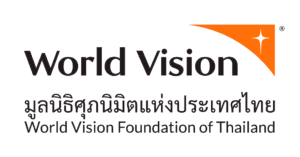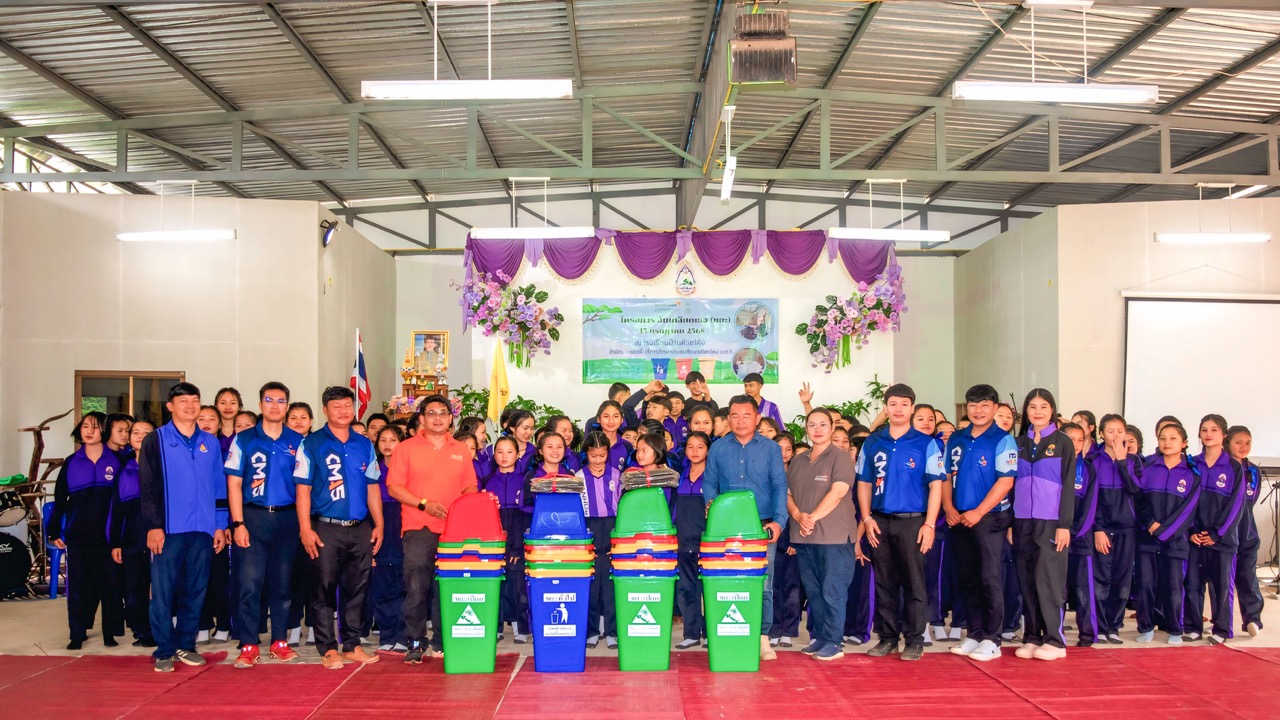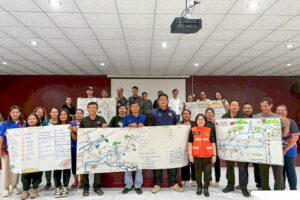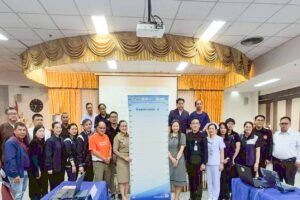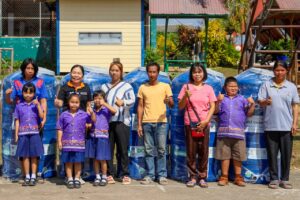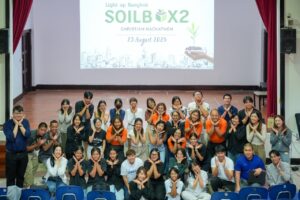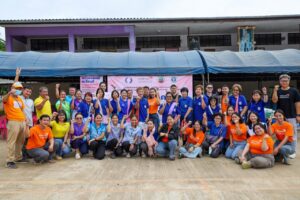“If there is too much trash, we will not be able to live,” says Wutthipong, or Wut, a 15-year-old Grade 8 student from a school in Omkoi District, Chiang Mai. He joins the “I Hate You (Trash)” project with friends from his community. This youth-led initiative is supported by World Vision Foundation of Thailand’s Chiang Mai Project and local schools.
Though they are just youth from a remote northern community, the problem they face is a national crisis. Thailand generates over 24 million tons of waste annually (Pollution Control Department, 2023), but only 35% is properly managed. The rest is often burned in the open or dumped into rivers and canals, harming health, the environment, and ecosystems.
In a rural area like Omkoi, the waste problem is even more complex due to limited collection systems, lack of knowledge, and absence of safe disposal sites. Niramon, or Cream, a 13-year-old girl who joins the learning camp shares the situation of her community: “In my community, trash is often dumped anywhere, and it piles up faster than we can manage.”
Moreover, organic waste from households, which makes up 50% of all waste, is often mixed with general trash, even though it can turned into compost to reduce pollution and support agriculture. But amid these challenges, a little light shines from the power of children in the community…
Taking Action: Dealing with Plastic Bottles, Milk Cartons, and Food Scraps
The “I Hate You (Trash)” project gives youth hands-on experience in creative waste management, such as:
· Turning plastic bottles into artificial flowers
· Making baskets from used milk cartons
· Composting food scraps in “Eco-Friendly Compost Bins”
“I made flowers from plastic bottles to help reduce waste, because people in our community still throw away trash anywhere. We also learned to make compost from household food waste by digging a hole, placing a perforated basket inside, adding food scraps, and covering it with a lid to keep insects out,” Cream explainsconfidently.
Wut adds, “We can turn trash into useful items like baskets and plant pots, or into compost. It helps reduce waste in the village and makes our community more pleasant.”
This camp also helps raise awareness and a sense of responsibility among the youth, who are eager to share their knowledge with their families. “I will tell my parents that food scraps can be turned into compost, so we can reduce the use of chemical fertilisers,” says Cream.
The Voice of Youth, The Hope of Community
Though the activity is short, what the children are learning and doing could have far-reaching impacts—if supported by families, the school, and the community.
At the national level, proper waste management remains a challenge. Thailand ranks among the top 10 countries contributing the most plastic waste to the ocean, while the country’s recycling rate is still low at only 25%.
That is why the power of youth at the community level means more than we think. When children in Omkoi begin to learn proper waste separation and creatively repurpose waste, the seeds of change are already sown. And if nurtured continuously, the hope for a better environment is no longer out of reach.
